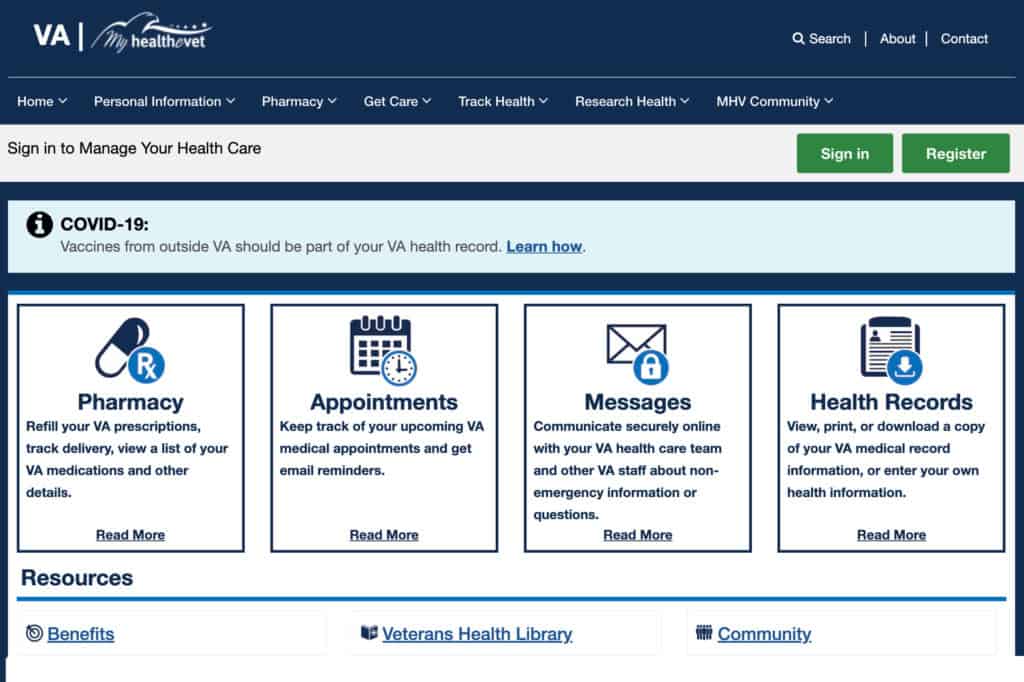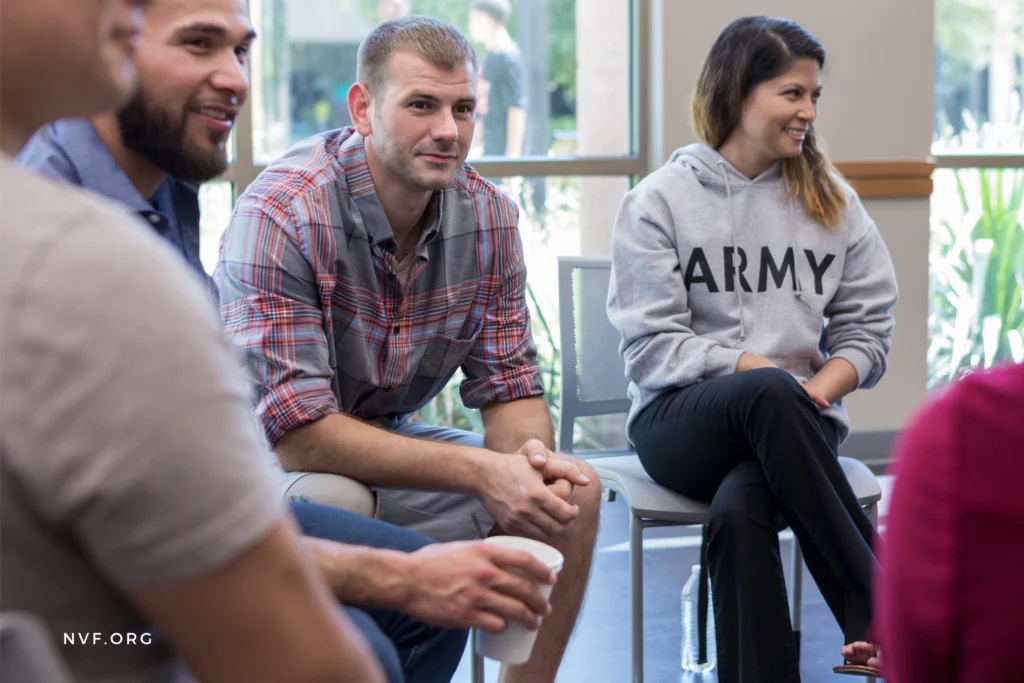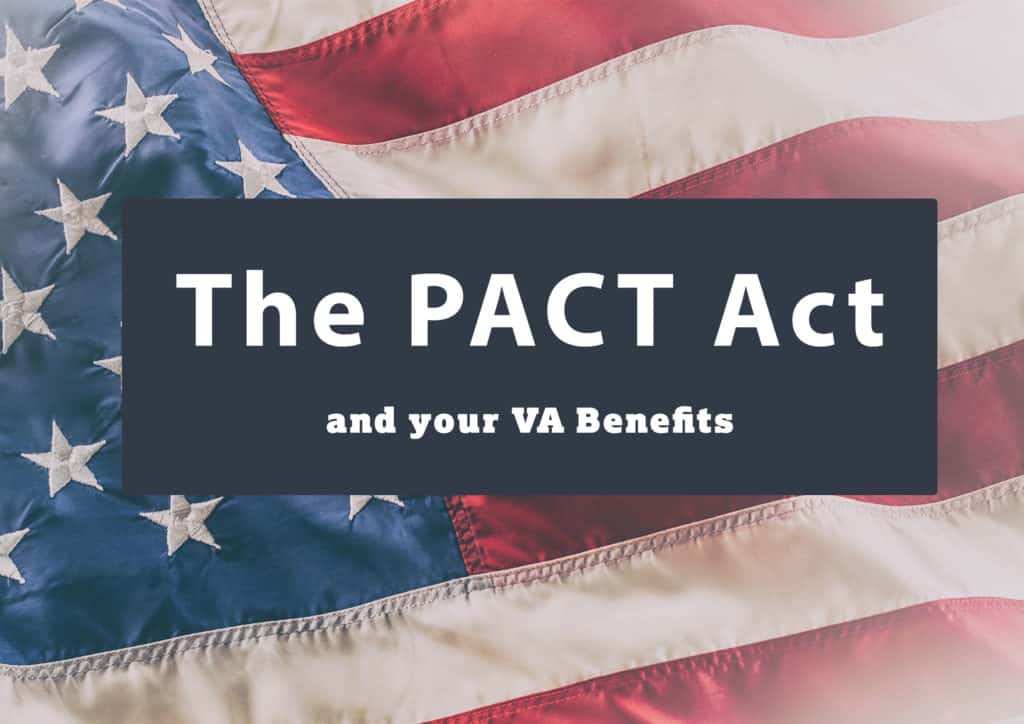My HealtheVet for Improved Veteran Healthcare
You dedicated years of your life to serve your country. And now that you’ve come home, it’s your country’s turn to take care of you. Unfortunately, many Veterans struggle with access to the care they need. But with tools like My HealtheVet, healthcare just got that much easier.
Here’s a look at some of the common healthcare challenges facing Veterans and what tools like My HealtheVet can do to help counteract them.
Health Challenges for Veterans
The nature of military service means that Veterans face unique health challenges unlike any other demographic group. This often means severe physical injuries, but also invisible injuries with equally pervasive consequences.
According to the 2020 Annual Warrior Survey of wounded post-9/11 Veterans, 94% of these Veterans experienced physical injuries classified as severe, 91% live with severe mental health conditions, and one-third need aid with everyday activities because of their injuries.
The good news is that we have seen improvements in rates of Veteran homelessness and employment. The bad news is that several key elements of Veteran healthcare continue to fall through the cracks—and many of them are issues that have been neglected for some time.
Mental Health
According to research by RAND Corporation, one in five Iraq and Afghanistan Veterans experience post-traumatic stress disorder (PTSD) or major depression. About 19.5% of Veterans with PTSD or major depression suffered a traumatic brain injury, a concerning sign considering that Veterans who suffer a traumatic brain injury are twice as likely to develop PTSD.
In addition, roughly 25% of Iraq and Afghanistan Veterans show signs of substance abuse disorder, and active duty and Veteran military personnel abused prescription drugs at twice the rate seen in the civilian population, both strongly correlated to their combat exposure.
Yet despite the prevalence of mental health concerns, the Substance Abuse and Mental Health Administration found that only 50% of returning Veterans receive the mental health treatment they need, and almost a quarter of those who seek treatment choose to do so through private sector providers rather than the VA due to VA wait times and lack of access to VA providers.
That’s a concerning statistic, considering that Veterans are 1.5 times more likely to commit suicide than civilians, and nearly two-thirds of the 61,000 Veterans who died by suicide in 2017 had not received care through the VA recently. That number is even higher for those in the National Guard and Reserves who may not be eligible for Veteran benefits.
Female and LGBTQ Veterans
Military culture portrayed in Hollywood tends to leave women out of the equation, yet women are the fastest-growing group seeking VA care, growth that coincides with their increasing demographic prevalence in military service.
Unfortunately, military service does not seem to have adapted to the rising presence of female warfighters. One in five female Veterans report experiencing sexual trauma during service, and one in four report experiencing sexual harassment by male Veterans on VA grounds alone. Then there are the unique challenges facing female Veterans, particularly those associated with pregnancy.
Then there are LGBTQ Veterans, who face massive health disparities compared to their straight counterparts. They face a vastly disproportionate risk of poor health outcomes, including depression, substance abuse, PTSD, chronic health conditions, and suicide. This is as much a product of social stigma and lack of support as barriers to care.
Common Healthcare Access Challenges for Veterans
Unfortunately, Veterans across the board face significant healthcare access challenges. This may be exacerbated by where they live, minority status, and other significant barriers to entry.
Rural Healthcare Access
For many Veterans, one of the biggest barriers to access is simply having a healthcare facility nearby which can serve them.
Access in urban areas is often simplified by a statistically higher population (and thus greater demand for healthcare services) as well as greater public transit access. That said, it depends on where you live—poor and minority neighborhoods tend to have less public transportation, and a distance of just seven miles (15 minutes by car) can make a hospital inaccessible if most people don’t own cars.
But for rural Veterans, the challenge is compounded. They may need to drive an hour or more just to visit a doctor, never mind a doctor with the specialized skills to handle major injuries and rehabilitation. Even for Veterans who don’t need specialized care, financial cutbacks and closures of community hospitals mean they may not have access to general healthcare providers anyway.
Organizational Barriers
Then there are issues with providers themselves.
Even if Veterans have access to providers, there are multiple barriers preventing them from accessing the highest-quality care. Cutbacks may mean that providers have a limited capacity to take on new patients or see current Veteran patients in a timely manner.
Then there’s the issue of training. If a Veteran opts for non-VA care due to lack of access to VA facilities, they may have to work with a provider who does not have specialized training to work with the unique health concerns of Veteran populations, or to do so with sensitivity toward military experience.
Social and Cultural Barriers
Unfortunately, there may be additional social and cultural issues that prevent Veterans from seeking vital care in the first place.
One good example is military attitudes toward healthcare, particularly mental health treatment. Career servicemembers may apply military attitudes toward their civilian decision-making, viewing mental health treatment as a sign of weakness or worrying that their care may impact their career. The latter is especially true of Veterans who continue to work with the military in a civilian capacity.
Managing Your Care with My HealtheVet
The good news is that there are tools available that help Veterans get the healthcare they need, no matter what that means or where you need it.
One such tool is a VA website called My HealtheVet, a site providing broad-ranging information and access to health services.

Access to Doctors and Care
First and foremost of My HealtheVet’s tools is access to doctors and medical care.
For example, when you create an account, you can use the Get Care tab to find healthcare providers near you, schedule your appointments, and keep track of all your healthcare information in one easy dashboard. You can find VA healthcare facilities online and get a better sense of what’s covered under your healthcare.
Plus, with the Health Calendar, you can do more than just schedule appointments. You can see every upcoming appointment with all of your healthcare providers all in one calendar, so you don’t need to chase information in ten directions. And when you look up VA treatment facilities, you can also track which facilities and providers you’ve worked with before.
Prescriptions
Then there’s the My HealtheVet pharmacy, which offers four features:
- My Medication + Supplements
- Refill VA Prescriptions
- VA Prescription History
- My VA Medication List
The first is all of your self-entered medications and supplements, which can include VA-issued prescriptions or prescriptions written by a private health provider. You can access your complete VA prescription history and all medications issued by VA providers, and you can refill VA-issued prescriptions through the platform.
Medical Records
Trying to keep track of all of your medical records? The My HealtheVet Track Health section can help.
For one thing, you can access your complete health history through this section. If you have lab test results performed by a VA provider, you can access them through this hub. If your doctor asked you to track your vitals, you can use the self-reporting feature to record your vital readings for VA providers to check. Similarly, you can record daily activity and food journals for your providers.
In short? If you need to record something about your health (or if your doctor needs to record something about your health) it’s all available here.
Learn About Your Health
Last but not least, My HealtheVet allows Veterans to learn about their health so that they can work with their healthcare providers to make the best possible decisions for their health goals.
My HealtheVet members get access to educational materials provided through VA Healthy Living Centers. That way, you can learn about common conditions and ways to manage them, even if you’re between appointments or seeking a new doctor. Pair it with the Medical Library and you have a whole host of materials to learn about (and better manage) your unique health circumstances.
For Veterans starting their mental health treatment journey or those continuing to seek care, there’s a whole library of mental health resources available so that you can find treatment, counseling, and support.
My HealtheVet and Other Veteran Lifeline Resources
At the National Veterans Foundation, we are proud to serve as a lifeline for Veterans and their families to access much-needed care. That includes resources like My HealtheVet, but it also includes specialized resources based on your needs, from homelessness to crisis hotlines to resources for Veteran women.
Either way, our goal is the same: high-quality non-governmental vet-to-vet service to better serve those who protect our country.
If you’re looking for more great Veterans’ resources, make sure to check out our resource page to get started.
You can be a part of our mission to help Veterans by making a tax-deductible donation!
About the Author
SUBSCRIBE TO OUR BLOG AND NEWS!
By submitting this form, you are granting: NATIONAL VETERANS FOUNDATION INC permission to email you. You may unsubscribe via the link found at the bottom of every email. (See our Email Privacy Policy for details.)
Related Posts





